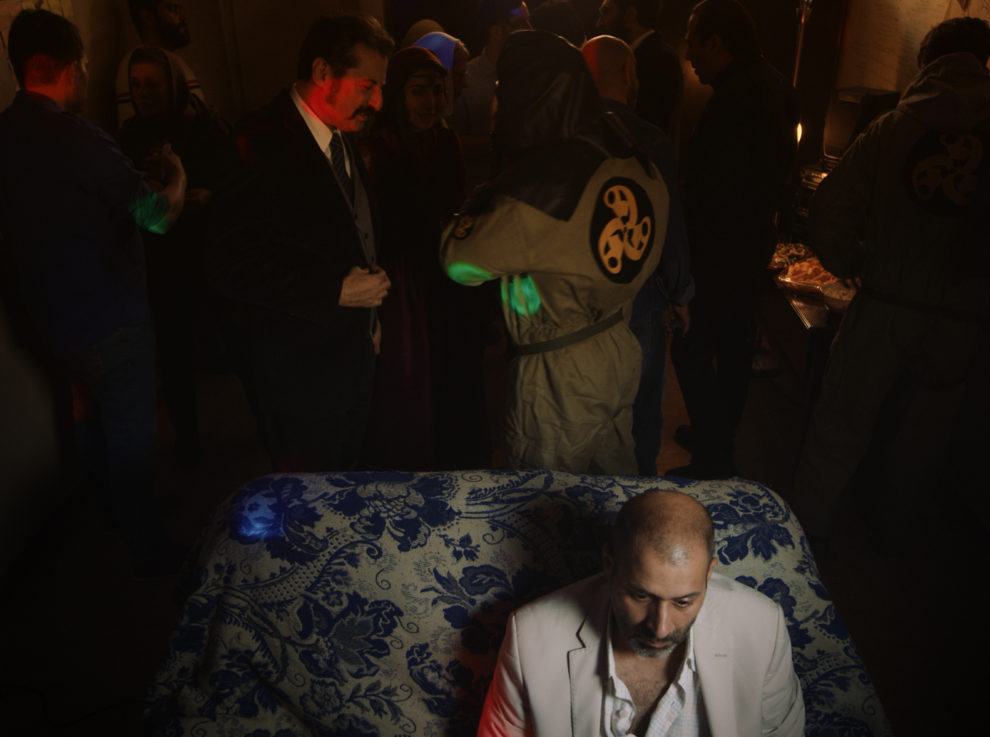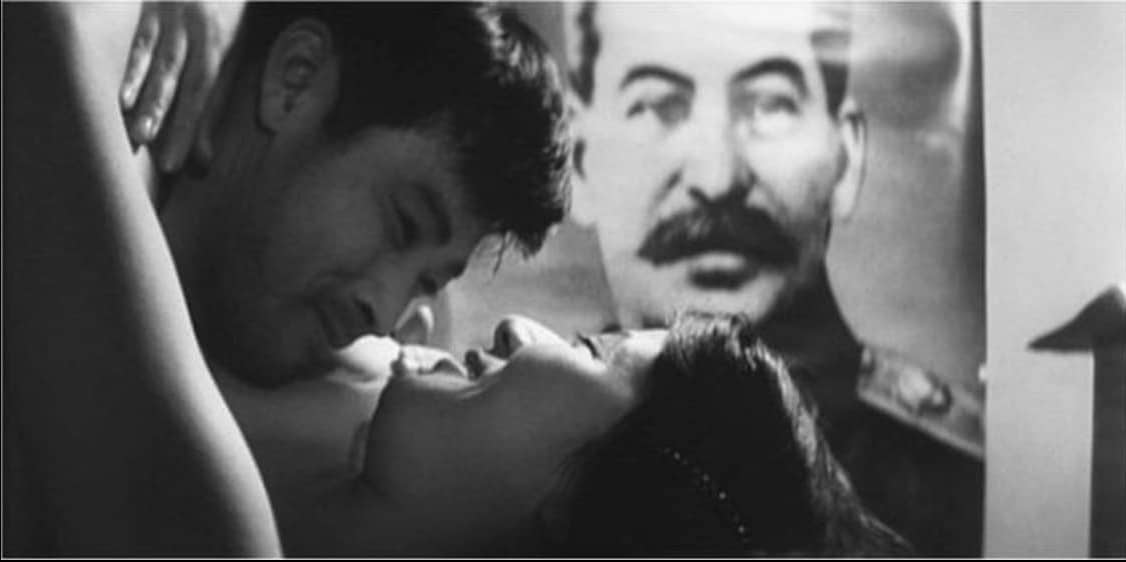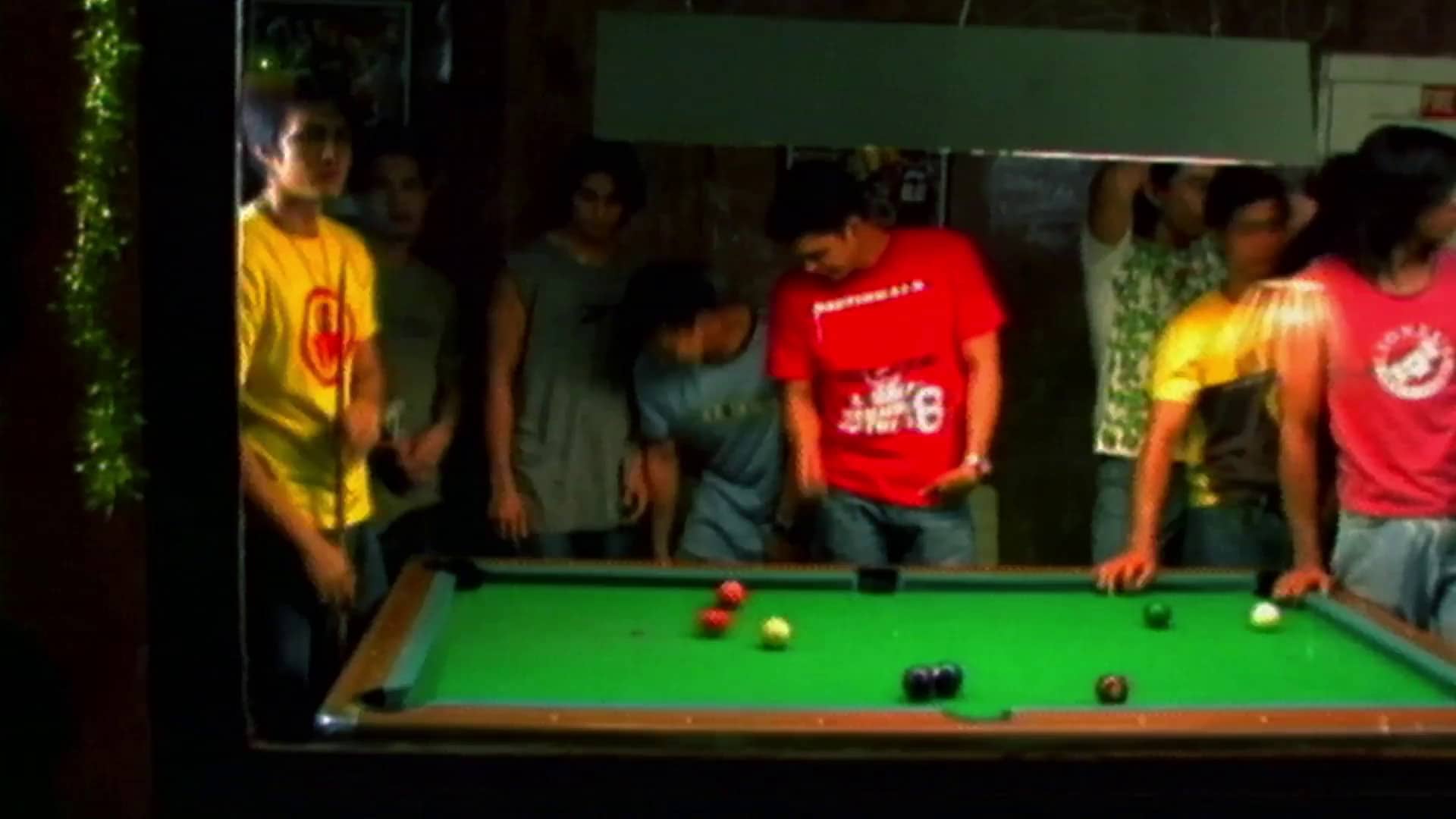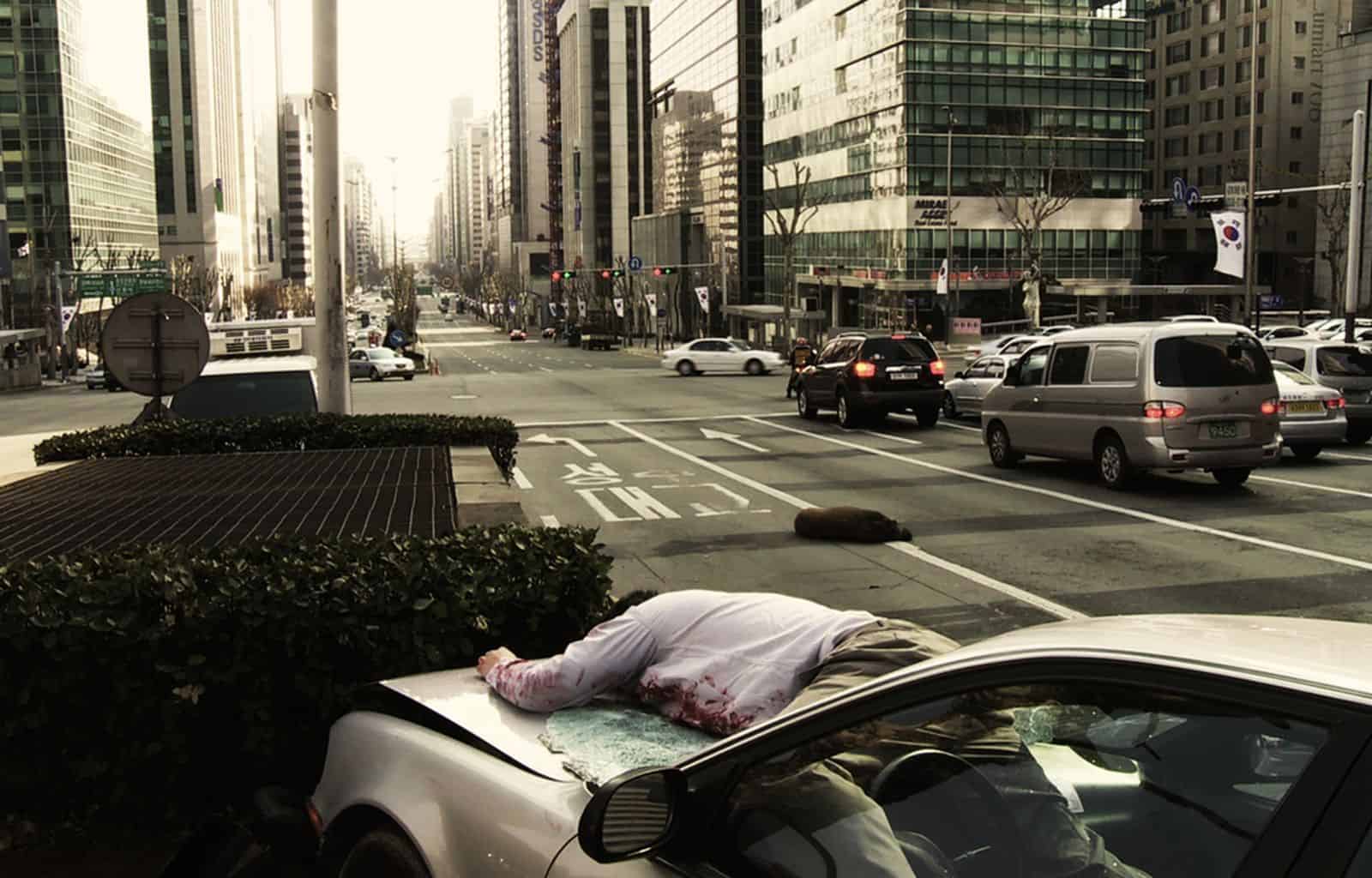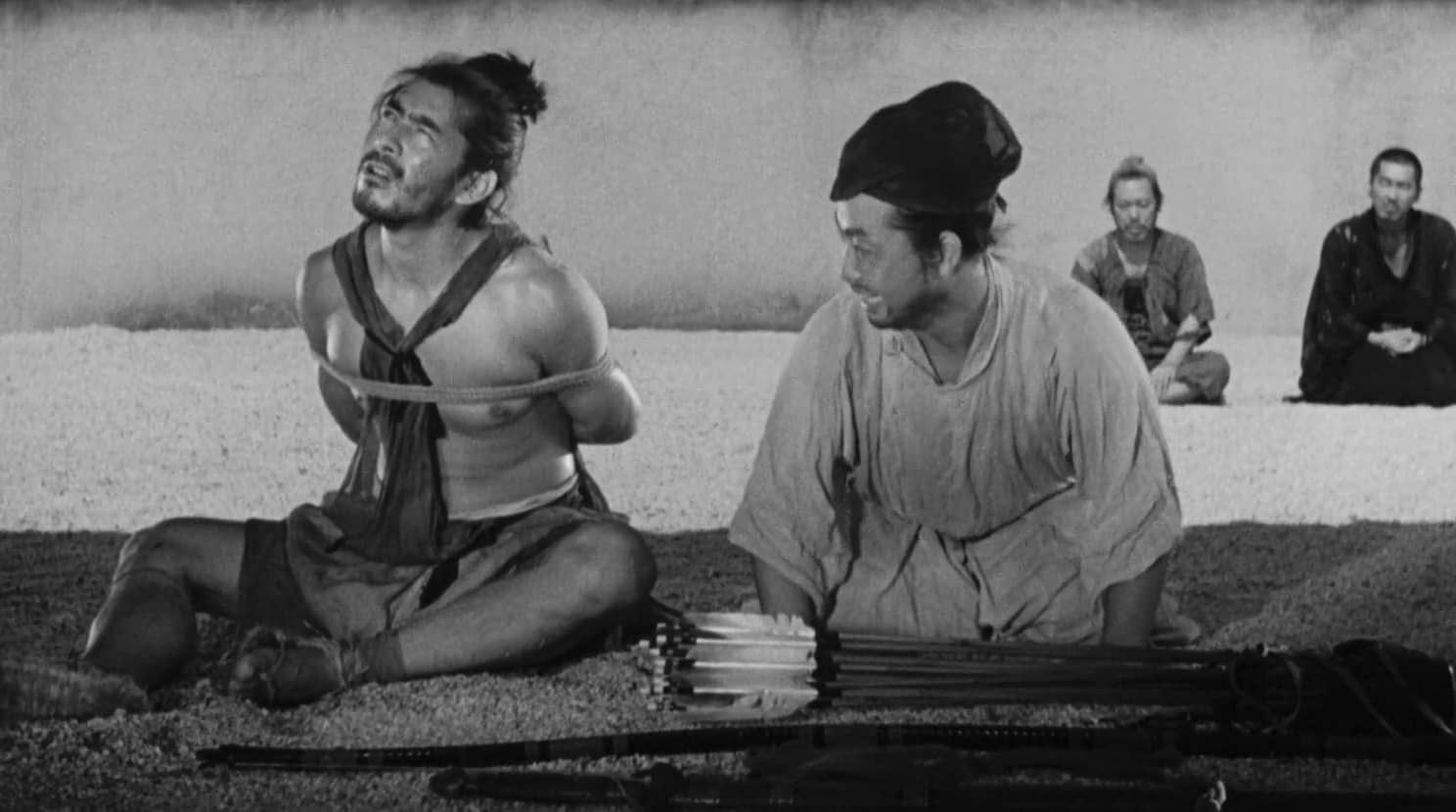Films that take place in the future but are not sci-fi-like at all, seem to become a tendency gradually, with filmmakers using the future to present their usually harsh but realistic comments about the present. Bardia Yadegari and Ehsan Mirhosseini implement this approach within their delirious narrative, in a rather personal film that was shot in their homes, with them and their friends and relatives playing the parts (Peyman, who is portrayed by Yadegari, and his mother are mother in son in real life).
District Terminal is screening at Berlinale
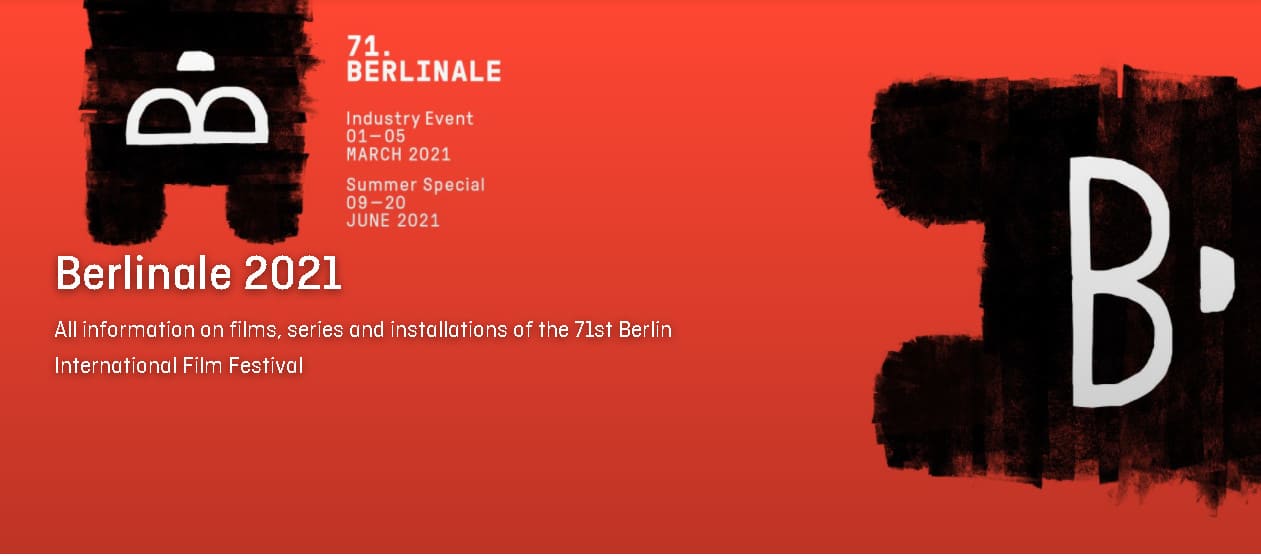
The story takes place in the near future, where pollution and a lethal virus have reduced the city to a dump and the population to emigrate, mostly to the US, or live in constant quarantine. Peyman is a poet and a drug addict who lives with his mother in a neighborhood that has been placed under round-the-clock surveillance by quarantine officers. His life moves in a “Groundhog Day”-style, with him running around the block, trying to buy continuously more expensive cigarettes from the local kiosk, hanging out with his teenage daughter, occasionally in meetings for drug addiction, hanging out with his friends, occasionally wrestling, having an illicit affair with a girl with whom he is hopelessly in love and talking online to a woman living in the USA whom he has married in order to emigrate. At the same time, his angst grows continuously as he has to fight with censorship regarding his writings, dictatorship, the collapse of the environment on which one of his friends is intently advocating against, and the possibility of war that hangs directly over all the aforementioned heads. His only way out of his situation seems to be drugs.
Bardia Yadegari and Ehsan Mirhosseini use a narrative that is fractured, interconnecting, and repetitive at the same time, in order to present the madness that has taken over both the world in the post-Covid era (although the film was conceived before) and Peyman's mind. The result, as dictated by the exceptional editing by Hossein Tavakoli, is delirious, confusing, but also impressive and quite eloquent in its comments, which manage to touch on all the aforementioned concepts that torment a rather large part of the world population at the moment, as much as Peyman.
Of equal excellence and contextual impact is also the cinematography by Navid Moheimanian, who creates a dystopian setting that looks disturbingly similar with the current reality, while presenting the claustrophobic environment Peyman inhabits, both literally and mentally, through his excellent framing.
And while this blurring of present and future, reality and fantasy is well-presented, the repetitive nature of the narrative, with the rather frequent cuts that usually transition to something completely different than the previous setting each time, becomes tiring after a fashion, particularly since the movie extends to almost 2 hours.
Furthermore, and while the comments the filmmakers make are spot on, the number of them, and the way they are presented in the narrative is also somewhat tiring. This element becomes more intense due to the life choices the protagonist makes, of taking drugs and constantly destroying himself while offending those around him, with his whole protests eventually coming across as nothing more than whining. At the same time, that self-destruction seems to be justified here due the conditions the particular character (and essentially Iranians) faces, emerges as a rather misplaced comment, as much as the violence that eventually takes over (?).
Evidently, the filmmakers are angry, and their anger is well communicated in the film, but since not much of a solution is given at any time (apart from self-destruction?) the whole narrative emerges as something artificially bleak, more of a complaint than anything else.
“District Terminal” is artful and definitely intriguing, but I feel that the filmmakers somewhat let their anger take over, eventually losing their sense of measure and thus dulling the potential impact such a narrative could have had.


